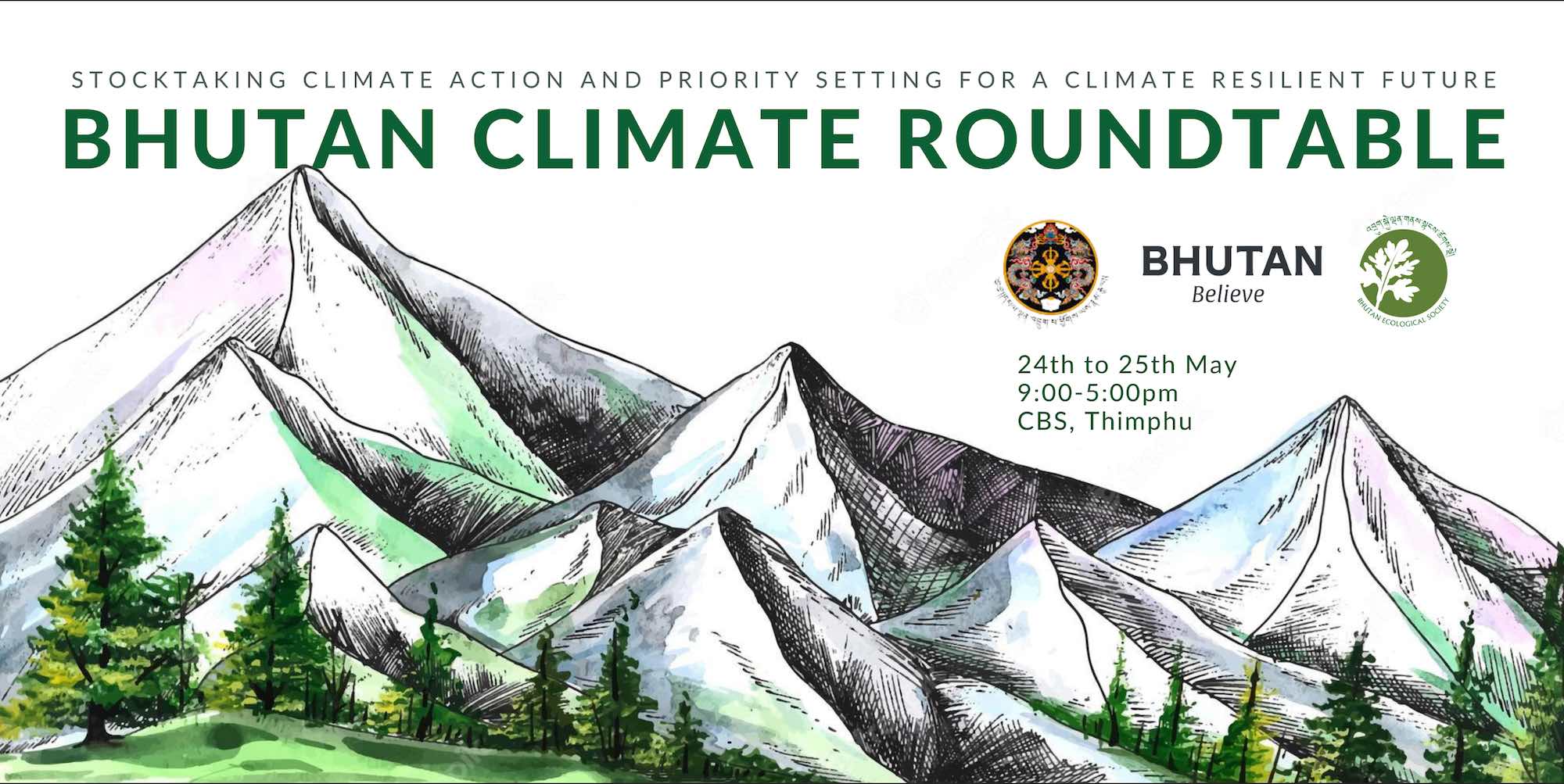Bhutan Climate Roundtable Drives Stocktaking Towards Climate Resilience

The Department of Environment and Climate Change under the Ministry of Energy and Natural Resources was supported by the Bhutan Ecological Society to organize the Bhutan Climate Roundtable, held from 24-25 May, 2023, at the Centre for Bhutan Studies. This pioneering event marked a significant milestone in our collective efforts towards stocktaking climate action and priority setting for a climate resilient Bhutan.
Throughout the two-day event, discussions centered around identifying sector-specific priorities for climate change mitigation and adaptation in Bhutan. By determining the most crucial areas, participants aimed to strategize the effective allocation of resources and efforts towards addressing climate-related challenges in Bhutan. Further, the roundtable served as a platform to overcome barriers and challenges at national, regional, and international levels, fostering collaboration among stakeholders to address technical capabilities, improve coordination, and overcome hindrances that impede progress in climate action. Additionally, the event facilitated the sharing of opportunities, good practices, and success stories, aiming to inspire further action and promote effective strategies.
The technical presentations, briefings, panel discussions and stakeholder engagement exercises stimulated meaningful dialogue among representatives from the private sector, government, and civil society. By fostering collaboration and shared responsibility, the event created a conducive environment for stakeholders to collectively address Bhutan’s unique challenges and opportunities.
According to the Press Release from the Department of Environment and Climate Change:
“The Bhutan Climate Roundtable yielded actionable insights and recommendations, underscoring the vital importance of ongoing efforts to bolster climate data, financing, and investment strategies for our NDCs, National Adaptation Plan (NAP), and LEDS. This includes enhancing the national capacity of direct access entities to expedite the mobilization of climate financing and innovative green financing. The need to catalyze significant investments in clean technology, renewable and clean energy, resilient infrastructure and urbanization, green urban spaces, resilient agriculture, water management, carbon sinks, biodiversity conservation, and green skills were also discussed. The outcomes of this event will inform future policies, strategies, and actions that drive climate action and sustainable development. Urgently, a Climate Resilience Investment Strategy will be developed to guide resource mobilization. Such consultative and problem-solving platforms will continue to converge, effectively translating ideas into positive, lasting changes on the ground, thereby ensuring prosperity for present and future generations.”